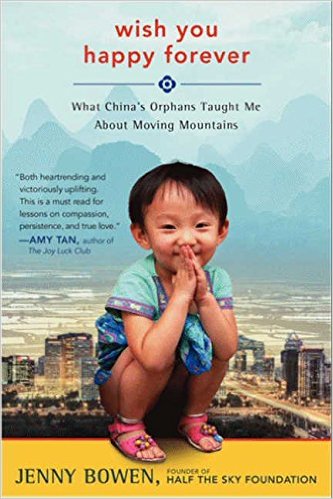By Samantha Pak
Northwest Asian Weekly
 Keiko’s Journey
Keiko’s Journey
By Kay Hirai
Chin Music Press, 2015
Kay Hirai was still a young child when World War II broke out in Japan. Her mother, an American citizen, had traveled back to Japan to care for her aging uncle, but they became trapped and struggled under the harsh conditions of war.
From finding shelter with her mother and the rest of their village in a cave during air raids, to facing starvation, “Keiko’s Journey” is a war story told from a child’s perspective. We see how Hirai, who went by Keiko at the time, and her mother managed to survive the war, only to face scorn and abuse from their neighbors following Japan’s surrender — all because of her mother’s citizenship — and abuse at home when Keiko’s father comes home from the war after he was presumed dead. We see how Keiko gets through these difficult times with only her dog Shiro as a companion.
And when Keiko and her mother travel to the United States, we see how a young girl of 11 adapts to life in her new country in an era when she was still considered the enemy.
“Keiko’s Journey” tells the story of the Second World War from the Japanese point of view, a perspective that does not get highlighted too often. We also catch a glimpse of what life was like for Japanese Americans in Japan, who may not have been put into the internment camps, but were still seen as the enemy and distrustful.
While Hirai does not shy away from the harsh realities of war, she also highlights some of the small pleasures she and her mother had during those times, from spending time with friends, to being able to enjoy an egg with their dinner. Hirai also shows readers a child’s resilience and how strong they can be, even in the toughest times.
 Wish You Happy Forever: What China’s Orphans Taught Me About Moving Mountains
Wish You Happy Forever: What China’s Orphans Taught Me About Moving Mountains
By Jenny Bowen
Harper One, 2014
In the summer of 1998, one year after she and her husband brought their 3-year-old daughter Maya home from China, Jenny Bowen was struck with a desire. In the span of one year, Maya had gone from frightened and sickly, to happy, healthy, and thriving, and Bowen wanted to see the same thing happen to more orphans — almost all girls — in China.
And so began Bowen’s journey to bring Western-style caretaking to Chinese orphanages. Her thinking, which was backed by studies she found through research, was that if the babies and young girls were placed in an environment with a caring adult, they would have a better chance to develop cognitively, emotionally, and physically.
But as well-intentioned and altruistic as Bowen was, the road to her founding Half the Sky Foundation and eventually becoming a partner nongovernmental organization (NGO) with the Chinese government and working with more than 50 sites was not an easy one. As an American, she faced cultural and language barriers, skepticism for being an outsider, red tape, and more. But Bowen was not discouraged.
“Happy Forever” gives readers a glimpse into a world that is not easy to consider. Bowen doesn’t shy away from the hardships the orphans face. From the way they are treated and how the orphanages are run, it is easy to draw the conclusion of how much the Chinese valued (or didn’t value) girls.
And while Bowen’s efforts may have a slight “white savior” feel, her writing shows that she is aware of that. As she works to establish Half the Sky, Bowen makes sure she goes through the correct government channels and processes to make sure the organization is legitimate and will be able to do the work that needs to be done — which is her top priority.
 Double Cup Love: On the Trail of Family, Food, and Broken Hearts in China
Double Cup Love: On the Trail of Family, Food, and Broken Hearts in China
By Eddie Huang
Spiegel & Grau, 2016
For Eddie Huang, life was good. His first memoir, “Fresh Off the Boat,” was a bestseller. He was the star of his own TV show that allowed him to travel around the world. And his restaurant Baohaus was doing well.
Then he fell in love and everything changed.
His relationship with an All-American white woman led Huang to wonder, “How Chinese am I?” To find the answer, he decides to do a reverse migration and travel back to the motherland: China.
Traveling with his two brothers, Emery and Evan, Huang was on a mission to find out if his food stood up to Chinese palates and to connect with his roots. And as is the case with most well-laid plans, things didn’t exactly turn out that way.
In this followup to his first book, Huang takes readers on a journey that is not too uncommon among children of immigrants: going back to where he came from. While his trip may have had a specific goal, the desire to learn about where you come from and find your place in the world is something many of us can relate to.
Huang also questions his views about love, romance, and marriage.
Huang is unapologetic and honest in telling his story. He doesn’t shy away from the more unpleasant aspects of his life, from growing up and seeing his father beat his mother, to the arguments he gets into with his brothers.
Huang’s openness, as well as his very distinct writing voice, filled with curse words and hip-hop references (a combination of both mainstream and obscure), lends his story to feel more like a conversation between friends than a memoir.
And as Huang is a chef with his own restaurant, food plays a large role in “Double Cup Love.” I recommend you not read this on an empty stomach.
Samantha can be reached at info@nwasianweekly.com.



